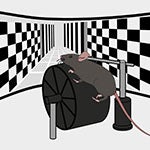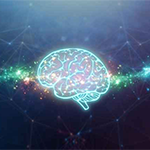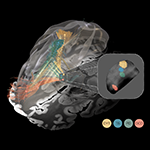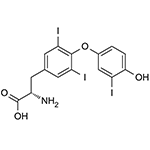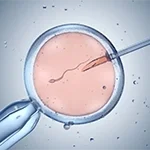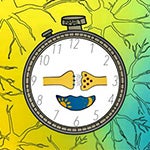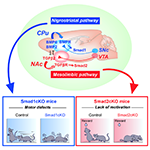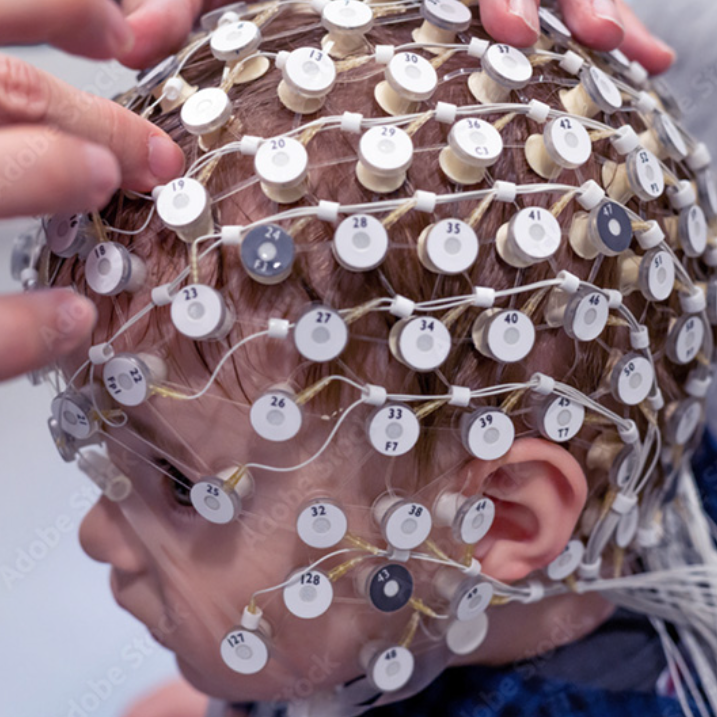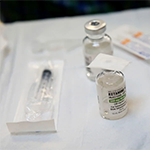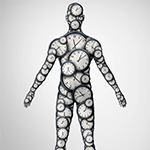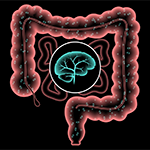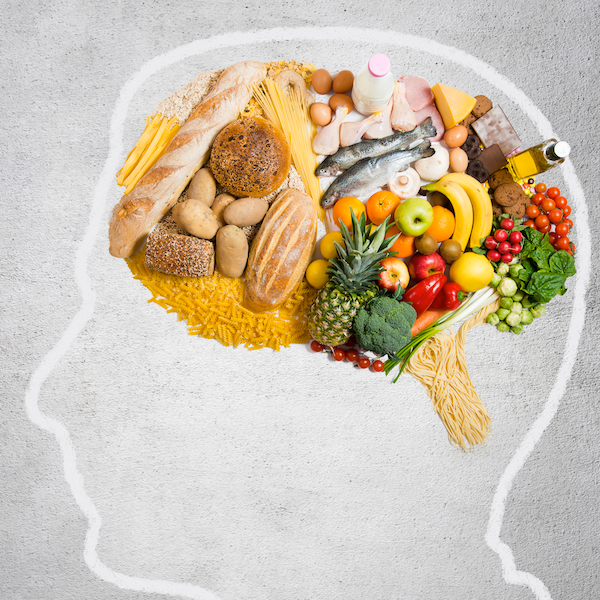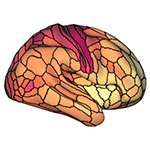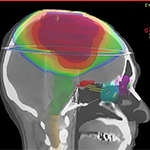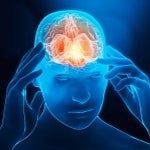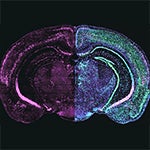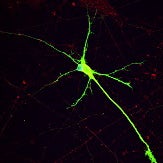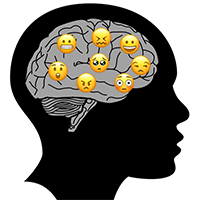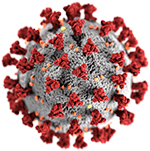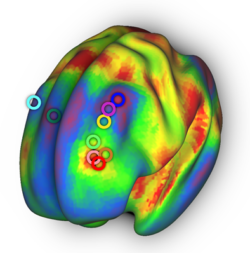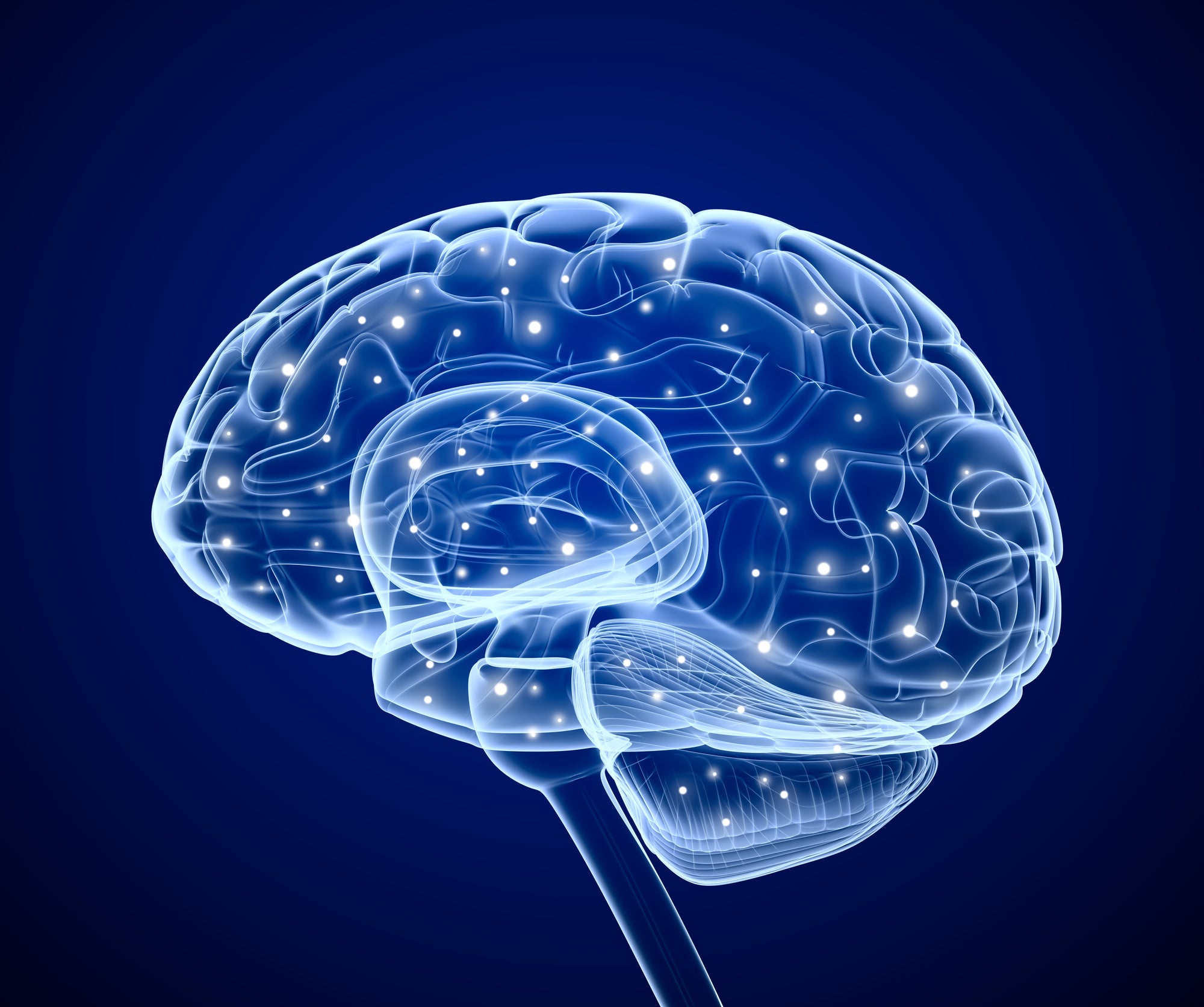Neuro Topics - Mental Health and Illness
SEARCH OTHER RESEARCH AREAS
April 24, 2024
A hallmark of anorexia nervosa is the willful seeking and maintenance of a starvation state, potentially as a means to cope with stressful life experiences or trauma. Hakan Kucukdereli and Mark Andermann share their research on how they designed a virtual reality paradigm to study this phenomenon in mice.
Original article in: Neuron >
April 22, 2024
A new study led by Mass. General Hospital researchers shows how a generative artificial intelligence (AI) model that can analyze the narrative accounts of women who have undergone recent childbirth can accurately screen for post-traumatic stress disorder (CB-PTSD).
Original article in: Scientific Reports >
April 22, 2024
Researchers investigated factors associated with psychosocial functioning in borderline personality disorder. In this study they share preliminary evidence that one key factor is reflective functioning, the capacity to consider one’s own and others’ mental states.
Original article in: Psychology and Psychotherapy >
April 15, 2024
Deep brain stimulation is a powerful therapeutic approach for severe brain circuit dysfunctions that can effectively alleviate the heterogeneous symptoms characteristic of Parkinson’s disease, dystonia, Tourette’s syndrome, and obsessive-compulsive disorder. Barbara Hollunder (Lab of Andreas Horn) explains what invasive brain stimulation can teach us about the circuit architecture of the brain’s dysfunction — and which commonalities it shares with a prism.
Original article in: Nature Neuroscience >
March 27, 2024
Q+A with David H. Rosmarin about his team's research into why patients being treated for anxiety weren’t reporting the worsening symptoms during the COVID-19 pandemic. In a cohort of 764 individuals, they found that cognitive behavioral therapy and dialectical behavior therapy appear to have been protective against pandemic-related anxiety.
Original article in: PLOS One >
March 14, 2024
Menopause has long been thought to cause psychological distress, but a new review suggests that this is not always the case. Hadine Joffe and colleagues found no evidence that menopause universally caused a rise in risk of mental health conditions—including depressive symptoms, major depressive disorder, anxiety, bipolar disorder, and psychosis—across all women.
Original article in: The Lancet >
March 8, 2024
Thyroid signaling plays a central role in metabolism. Ralph Lawton and Daniel Hochbaum of the Sabatini Lab share new research revealing it may regulate human behavior and other important components of health as well.
Original article in: PNAS >
February 2, 2024
Researchers from Mass. General Hospital, University College London, and the University of the Republic in Uruguay found a two-way association between anorexia-related genes and those associated with the morning chronotype (waking early/going to bed early). This contrasts with disorders such as depression, binge eating disorder, and schizophrenia, which are associated with an evening chronotype.
Original article in: JAMA Network Open >
December 7, 2023
Researchers have identified at least one potential link that locks sleep deprivation and chronic pain in an endless loop. Featured in the Harvard Gazette. From Shiqian Shen and colleagues, co-first authors Weihua Ding and Liuyue Yang.
Original article in: Nature Communications >
November 13, 2023
Harvard Gazette article on new research from David Mischoulon and colleagues, first author Maren B. Nyer, showing that in a randomized controlled clinical trial of adults with moderate-to-severe depression, those who participated in heated yoga sessions experienced significantly greater reductions in depressive symptoms compared with a control group.
Original article in: Journal of Clinical Psychiatry >
November 13, 2023
Harvard Gazette article on new research from Martin Kathrins and colleagues, first author Zachary Walker, assessing the effects of anxiety and depression in men on fertility and IVF outcomes. They found no correlation between anxiety, regardless of antidepressant use, and IVF outcomes or live birth rate.
Original article in: Human Reproduction >
October 26, 2023
The time of day influences cognition, but the molecular and synaptic mechanisms of this influence are elusive. We show that the circadian clock protein BMAL1 has a rhythm in synapses that is critical for corresponding rhythms in synaptic plasticity. Our findings point to local mechanisms for gating computations in anticipation of the time of day.
Original article in: Science Advances >
October 6, 2023
Akiko Terauchi and Hisashi Umemori share new research that identified the pathway-specific signals that establish functionally segregated dopaminergic synaptic connections in the mammalian brain. The findings may provide strategies to treat pathway-specific disease symptoms in diseases like Parkinson's disease, schizophrenia, and depression, by targeting the pathway-specific molecular signals.
Original article in: Cell >
September 27, 2023
Boston Children's Hospital Answers article on new research from Charles Nelson and colleagues at HMS, Boston Children's Hospital, The University of San Francisco, and the University of Minnesota, suggesting a possible way to detect anxiety disorders in children before they become apparent clinically using electroencephalograms (EEGs).
Original article in: Frontiers in Psychiatry >
September 13, 2023
HMS News article on new research from Sharon K. Inouye and colleagues from Harvard Medical School and Hebrew SeniorLife, pinpointing several risk factors that contributed to older adults’ likelihood of experiencing loneliness, including older age, inability to complete daily activities, vision impairment, depression, and anxiety.
Original article in: American Journal of Geriatric Psychiatry >
July 31, 2023
HMS News article on a new large-scale study from the team of Ronald Kessler (HMS), John McGrath (Univ. of Queensland), and colleagues from 27 other countries. The results of this study demonstrate the high prevalence of mental health disorders worldwide, with 50 percent of the population developing at least one disorder by the age of 75.
Original article in: The Lancet Psychiatry >
July 21, 2023
HMS News article on new research from Haiden A. Huskamp and colleagues, first author Lindsay Overhage, finding that the number of young people in the United States visiting hospital emergency departments for mental health crises increased sharply during the second year of the COVID-19 pandemic.
Original article in: JAMA Psychiatry >
June 30, 2023
Boston Children's Hospital Answers article on new research from Melissa Christino and colleagues explore the links between an athlete’s mental and emotional state and their physical recovery from injury.
Original article in: Arthroscopy, Sports Medicine, and Rehabilitation >
June 16, 2023
Harvard Gazette article on a Mass. General Brigham led clinical trial (first author Amit Anand). Of the 403 patients studied, they found that 55 percent of those receiving ketamine treatment experienced a sustained improvement in depressive symptoms without major side effects.
Original article in: New England Journal of Medicine >
June 16, 2023
Harvard Gazette Q+A with Fangyun Tian who was the first author of a recent MGH study tracing the effects of ketamine, a fast-acting antidepressant with potential for abuse due to its dissociative effects, to three regions of the human brain. The prefrontal cortex and hippocampus are believed to have a role in the drug’s effectiveness as an antidepressant, while the posteromedial cortex, in the back portion of the brain, is a likely site for dissociative effects.
Original article in: Nature Communications >
May 11, 2023
Harvard Gazette article on new research from Matthew Nock and colleagues, first author Daniel Coppersmith, using smartphones to capture the duration and frequency of suicidal thinking. Their research revealed that suicidal thinking changes rapidly and on far shorter timescales than previously thought. They also gained new understanding of when suicidal desire is most predictive of future intent—knowledge which could lead to more effective prevention.
Original article in: PNAS >
May 11, 2023
Harvard Gazette article on new research from Vadim N. Gladyshev and colleagues, first author Jesse R. Poganik, finding that in preclinical models and in humans, stress from surgery, pregnancy, and severe COVID-19 increased signs of biological age, which were reversed following recovery.
Original article in: Cell Metabolism >
May 11, 2023
Brigham and Women's Hospital press release on new research from Laura D Kubzansky, Yang-Yu Liu, and colleagues, first author Shanlin Ke, linking specific bacteria in the gut to positive emotions like happiness and hopefulness and healthier emotion management skills. Also featured in the Harvard Gazette.
Original article in: Psychological Medicine >
April 20, 2023
HMS News article on new research from Rebecca Robbins and colleagues finding that in-person interactions with friends, family, and health care providers were associated with fewer mental health concerns. In contrast, interactions using digital technologies, including emails and video calls, were associated with feelings of depression and anxiety about COVID-19.
Original article in: Journal of Applied Gerontology >
March 31, 2023
Harvard Gazette article on new research from Chi-Fu Jeffrey Yang and colleagues, first author Alexandra L Potter, revealing elevated suicide rates among adults undergoing surgery for cancer, with half of the suicides occurring during the first three postoperative years.
Original article in: JAMA Oncology >
February 24, 2023
HMS News article on new research from Aaron Baggish and the Football Players Health Study at Harvard University, first author Rachel Grashow. The odds that former professional football players will be diagnosed with high blood pressure — a known risk factor for cardiovascular and cognitive dysfunction — rises in step with the number of concussions the athletes sustained during their careers
Original article in: Circulation >
February 24, 2023
HMS News article on new research from Nathaniel Harnett and Kerry Ressler, first author Nathalie M. Dumornay, highlighting how structural racism may affect brain development and psychiatric disease in Black and white children.
Original article in: American Journal of Psychiatry >
January 25, 2023
HMS News article on new research from Tamara Fong, Sharon Inouye, and colleagues, finding that the modified and extended version of the Hospital Elder Life Program (HELP-ME), a well-established and highly successful delirium prevention program, is both feasible and acceptable to hospital staff and patients.
Original article in: Journal of the American Geriatrics Society >
December 8, 2022
Harvard Gazette article spotlighting a new course taught by Erin Hecht investigating canine behavior and what it can tell us about ours.
Original article in: Journal of the American Geriatrics Society >
December 8, 2022
Harvard Gazette article on new research from Elizabeth A. Kensinger and colleagues, first author Tony Cunningham, validating the impact major political events can have on sleep and how it affects the public’s collective mood, well-being, and alcohol consumption.
Original article in: Sleep Health >
November 28, 2022
HMS News article on new research from Michael Prerau and colleagues, extracting tens of thousands of electrical events from the brain waves of a sleeping person, creating a picture of brain unique for each person and consistent from one night to the next in order to better identify potential biomarkers in the brain activity of people with schizophrenia and other brain conditions.
Original article in: Sleep >
October 14, 2022
HMS News article on new research from Frank Scheer and colleagues, first author Nina Vujović, providing experimental evidence that late eating may increase hunger and obesity risk.
Original article in: Cell Metabolism >
October 14, 2022
Harvard Gazette article on new research from Judith Owens and colleagues, first author Rebecca Robbins, surveying parents and caregivers and finding that more than two-thirds of those surveyed believed in the top three most salient myths about sleep.
Original article in: Sleep Health >
September 29, 2022
Brigham and Women's Hospital press release on new research from Frank Sheer, Sarah Chellappa, and colleagues, first author Jingyi Qian, adding new evidence that meal timing may affect mental health, including levels of depression- and anxiety-related moods. Also featured in HMS News.
Original article in: PNAS >
September 29, 2022
Brigham and Women's Hospital research brief on new research from Tamar Sofer and colleagues, first author Einat Granot-Hershkovitz, finding in diverse study populations that blood metabolites related to sugars were associated with older adults’ global cognitive health.
Original article in: Alzheimer's & Dementia: The Journal of the Alzheimer's Association. >
September 20, 2022
Harvard Gazette article highlighting recent research from Michael Barnett, Arno Cai, and colleagues showing how much the mental health system increasingly relies on psychiatric mental health nurse practitioners (PMHNPs) to meet the psychiatric needs of Medicare patients.
Original article in: Health Affairs >
September 9, 2022
Graham Baum and colleagues from the lab of Leah Somerville report on new MRI data analyses investigating the timeline and topography of myelin development in the brain from childhood to early adulthood, using data from the Human Connectome Project in Development. This work is part of a project supported by the HBI Bipolar Disorder Seed Grant program.
Original article in: Journal of Neuroscience >
June 30, 2022
HMS News article on new research from Michael D. Fox and colleagues, co-first authors Juho Joutsa, Khaled Moussawi, Shan H. Siddiqi, using a new lesion network mapping technique to map addiction remission to entire brain circuits rather than specific brain regions.
Original article in: Nature Medicine >
June 15, 2022
Mass. General Hospital Advances in Motion article on new research from Randy Buckner and colleagues, co-first authors Constanza M. Vidal Bustamante and Garth Coombs III, determining in an intensive full-year study of elite first-year college students that frequent social stress is more likely than academic stress to be associated with subsequent psychological problems.
Original article in: Scientific Reports >
June 15, 2022
Harvard Gazette article on what language a bilingual or multilingual person is most likely to dream in and why.
Original article in: Scientific Reports >
June 15, 2022
Harvard Gazette Article on a recent conversation with author W.A Harris and Josh Sanes about Harris's book Zero to Birth: How the Human Brain Is Built. In his book, Harris elucidates how one cell develops into the complex operational centers that not only make us human, but also individuals, with entirely unique traits, behaviors, and malfunctions.
Original article in: Scientific Reports >
June 15, 2022
Harvard Health Publishing article on how a deluge of traumatic news is affecting us. Our responses to the pandemic and continuous uncertainty, fueled by doomscrolling and newsfeeds, range from hyperactivation (fight or flight) to numbness (freeze).
Original article in: Scientific Reports >
June 15, 2022
Harvard Gazette article on new research from Mohammad Jalali and colleagues, first author Tse Yang Lim (MIT), capturing how the interconnections between stages of prescription and illicit opioid use, from initiation and addiction treatment to relapse and overdose mortality, have evolved over time.
Original article in: PNAS >
May 24, 2022
HMS News article on new research from Rishi Wadhera, Michael Liu, and colleagues, showing worse mental health outcomes and higher rates of substance abuse among adolescents experiencing homelessness.
Original article in: JAMA >
May 24, 2022
HMS News article on new research from Christopher J. Hartnick and colleagues, first author Phoebe K. Yu, demonstrating that a surgically implanted device that moves the tongue forward during sleep can safely and effectively reduce sleep apnea in adolescents with Down syndrome.
Original article in: Nature Communications >
March 31, 2022
Yiwen Zhu and colleagues from Erin Dunn’s lab examined in humans the effect of genes previously shown to influence the timing of sensitive periods in animals and the interplay between these genetic factors and exposure to commonly occurring childhood adversities on depression risk. They found that genes regulating sensitive periods associated with depression risk and their expression levels varied over the course of development.
Original article in: Neuropsychopharmacology >
March 8, 2022
HMS News article on new research from Marco Loggia and colleagues, first author Ludovica Brusaferri, suggesting that pandemic-related stressors may lead to brain inflammation in people not infected with SARS-CoV-2.
Original article in: Brain, Behavior, and Immunity >
February 7, 2022
HMS News article on new research from Roy Perlis and colleagues showing links between depressive symptoms and belief in false statements.
Original article in: JAMA Network Open >
February 7, 2022
Harvard Gazette article on recent study from lead author James McKowen and colleagues suggesting that 20% of young adults treated for alcohol or drug use may have undiagnosed traits characteristic of autism-spectrum disorder.
Original article in: American Journal of Addictions >
January 7, 2022
Emotional eating is known to be a contributing factor to overeating and can potentially lead to obesity or disordered eating. Laura Holsen shares new research showing how differential responsivity to stress may increase the risk of developing maladaptive eating behavior.
Original article in: Appetite >
November 2, 2021
Sarah Melzer from the Sabatini lab shares new work on the functions of the neuropeptide GRP in regulating fear memories. Their work highlights the mechanisms through which GRP modulates a specialized neuronal circuit in the cortex during fear conditioning.
Original article in: Cell >
September 1, 2021
Harvard Gazette article on new research from the labs of Katie L. McLaughlin and colleagues at the University of Washington, first author Maya L. Rosen, suggesting practical strategies to help children through a pandemic.
Original article in: PLOS One >
Disease Characteristics of Dopaminergic Neurons in Neurodevelopmental and Neuropsychiatric Disorders
July 20, 2021
Maria Sundberg shares new research from the lab of Mustafa Sahin on the role of a small piece of chromosome 16, called the 16p11.2 locus, in disease phenotypes of dopaminergic neurons. The team identified that RhoA pathway activation led to network dysfunction in 16p11.2 deletion neurons. Its inhibitor, Rhosin, rescued the hyperactivity of these neuronal networks. In the future, the RhoA pathway and its inhibitors may serve as potential therapeutic targets.
Original article in: Nature Communications >
July 13, 2021
The development of new, safe, and effective treatment options for neuropsychiatric illness has been very challenging. Brian Kangas, Bill Carlezon and Diego Pizzagalli share new work aiming to accelerate progress in this critical research area, with the development of behavioral and neural testing methods in rats designed to have high concordance to methods used in clinical patient populations.
Original article in: Nature >
July 13, 2021
Jakob Hartmann and Kerry Ressler share new research dissecting the interplay between key proteins involved in regulating the body’s stress response. Their work provides novel insight into mechanisms of stress homeostasis and points to potential therapeutic targets when this response goes awry.
Original article in: Cell Reports >
May 4, 2021
HMS News article on new research from the Harvard Medical School and Cambridge Health Alliance’s Health Equity Research Lab, first author Ana Progovac, finding that transgender and gender-diverse (TGD) patients in an urban safety-net health system experienced more suicide attempts, suicidal ideation, and violence victimization than other patients in the health system
Original article in: World Medical & Health Policy >
April 30, 2021
David G. Weissman shares new research from the labs of Katie McLaughlin and Leah Somerville, investigating if low emotional awareness contributes to the severity of mental health problems in teenagers.
Original article in: Clinical Psychological Science >
April 23, 2021
Harvard Gazette article on new research from Katie A. McLaughlin and colleagues, first author Jorge Cuartas, suggesting that spanking may affect a child’s brain development in ways similar to more severe forms of violence.
Original article in: Child Development >
April 8, 2021
Harvard Catalyst interview with Paulo Lizano, a neuropsychiatrist and assistant professor of psychiatry at Beth Israel Deaconess Medical Center (BIDMC) and Harvard Medical School.
Original article in: Child Development >
April 8, 2021
Harvard Gazette article on new research from Ya-Chieh Hsu, Amar Sahay, and colleagues, first author Sekyu Choi, identifying the biological mechanism by which chronic stress impairs hair follicle stem cells, confirming long-standing observations that stress might lead to hair loss.
Original article in: Nature >
March 23, 2021
HMS News article on new research from Ross Zafonte and colleagues, first author Saef Izzy, finding that people who have suffered concussions may also carry increased risk for other medical conditions such as diabetes, neuropsychiatric, and cardiovascular disorders.
Original article in: Journal of Neurotoma >
February 19, 2021
Stephanie Rudolph shares new research she performed while a postdoc in Wade Regehr's lab showing that the cerebellum can regulate behavior in a sex-specific manner. She found that deletion of a hormone-sensitive GABA receptor subunit from the cerebellum resulted in increased stress-related behaviors in female but not male mice. Future research targeting these GABA receptors may help identify therapeutic approaches for sex-biased neurodevelopmental & psychiatric disorders involving the cerebellum
Original article in: Cell Reports >
February 8, 2021
Harvard Gazette article recapping an online seminar about mental health during the pandemic. Experts from the Harvard T.H. Chan School of Public Health, the National Alliance on Mental Illness (NAMI), and the Dr. Lorna Breen Heroes’ Foundation gathered for an hour long online discussion of what may be one of the pandemic’s most painful if lesser-recognized effects.
Original article in: Cell Reports >
October 6, 2020
Harvard Gazette Q+A with Laura Kubzansky on a new study finding a host of health benefits accompany an optimistic attitude.
Original article in: Cell Reports >
October 6, 2020
Harvard Gazette article on a new study led by MGH researchers suggesting light therapy is safe and may help patients with moderate brain injury. From Rajiv Gupta, Benjamin Vakoc and colleagues, co-first authors Can Ozan Tan and Maria Gabriela Figueiro Longo.
Original article in: JAMA Network Open >
September 10, 2020
Harvard Gazette article on a new study from Erin Dunn and colleagues, first author Katherine Crawford, finding that the loss of a pet can potentially trigger mental health issues in children.
Original article in: European Child & Adolescent Psychiatry >
August 24, 2020
HMS News article on new research from Karmel Choi, Jordan Smoller, and colleagues, finding that social connection is the strongest protective factor for depression.
Original article in: The American Journal of Psychiatry >
May 15, 2020
By Shan H. Siddiqi, MD:
We’ve known for over a century that different brain regions have different functions. Now we can finally translate this into symptom-specific treatment targets.
Original article in: American Journal of Psychiatry >
May 13, 2020
The Longwood Chorus has recently released a music video featuring a virtual performance of “Bridge Over Troubled Water”, highlighting members' contributions to fighting COVID-19.
Original article in: American Journal of Psychiatry >
May 1, 2020
Round up of awards and honors earned by the HBI community.
Original article in: American Journal of Psychiatry >
February 3, 2020
New findings from the lab of Ya-Chieh Hsu (first author Bing Zhang) involving nervous system and stem cells suggest just how stress may trigger the change.
Original article in: Nature >
October 15, 2019
New research from the labs of Sara Lazar and colleagues, first author Gunes Sevinc, suggests that mindfulness meditation training alters how we process fearful memories.
Original article in: Biological Psychiatry >
September 30, 2019
HMS News article on new research from the lab of Mark Weisskopf, first author Andrea Roberts, and colleagues suggesting that longer careers and playing position each appear to spell greater long-term risk for serious cognitive problems in NFL players.
Original article in: American Journal of Sports Medicine >
July 3, 2019
McLean's Deborah Levy and colleagues provide a proof-of-principle demonstration of symptom relief by targeting a specific genotype and links an individual structural mutation to the pathophysiology of psychosis and treatment response.
Original article in: Biological Psychiatry >
April 15, 2019
Brain imaging reveals neural network changes that may explain resistance to changes in brain structures caused by childhood maltreatment.
Original article in: Biological Psychiatry >
April 9, 2019
BCH Vector Blog article on a new study from the lab of Charles Nelson (first author Lara Pierce) assessing new mothers’ stress levels and EEG patterns in their 2-month-old babies. Such patterns could help flag at-risk infants.
Original article in: JAMA Pediatrics >
April 9, 2019
HMS News article on a new study from the lab of Joseph DeGutis (first author Elizabeth Riley) shedding light on associations between psychological distress symptoms and cognitive dysfunction in returning combat veterans.
Original article in: Neuropsychology >
January 29, 2019
Harvard Gazette article highlighting a large international genetic study from the teams of Michael Weedon (University of Exeter), Richa Saxena (MGH), and colleagues (co-lead authors Samuel Jones and Jacqueline Lane), shedding new light on the body clock and its links to mental health.
Original article in: Nature Communications >
October 30, 2018
Harvard Gazette article on recent research from Randi Schuster & colleagues finding that one month of abstaining from cannabis results in measurable improvement in memory functions important for learning among regular cannabis users in adolescence.
Original article in: Journal of Clinical Psychiatry >
September 28, 2018
BCH Vector Blog post on new research from the labs of Charles Nelson and colleagues, involving children in Romanian orphanages—tells cautionary tale about the psychiatric and social risks of family separation
Original article in: JAMA Psychiatry >


